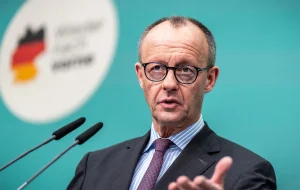German Challenge

The first murmurings of rebellion against Germany’s Chancellor Friedrich Merz are now being heard, just six months after he assumed office. When he took over, Europe came to terms with Donald Trump’s return to White House and the financial markets in Paris, Milan, and Berlin responded with a surge of optimism as Merz brokered a historic deal which loosened constitutional spending constraints in Germany, EU’s powerhouse nation. The fiscal move, it was hoped, would end a prolonged period of economic stagnation and counter the challenges posed by the US President’s tariff war. The worries, however, are back. The Chancellor’s plan included changing Germany’s age-old policy on defence spending, designed to prepare the country for a changed era in which the US was no longer a dependable ally and a huge 500bn investment was needed in infrastructure and the green transition.
Last week, the chancellor’s team of economic advisers downgraded growth forecasts for 2026 to below 1%. This is coupled with the fact that there has been a slump in business confidence. When Merz announced the lifting of Germany’s “debt brake”, it was believed that it would not be an instant panacea for longstanding problems. It was rightly suggested then that patience would be required before the full impact of spending on the country’s ailing transport systems is felt. Unfortunately for Merz’s party, the patience of the people appears to be wearing thin.
A recent survey has revealed Merz’s popularity rating is dangerously nosediving. Such disillusionment is a cause for concern not only for the Chancellor, but also for his centre-right-led coalition government and mainstream politics as a whole, with the Far-Right Alternative for Germany party topping the polls. To make matters worse, Germany has found itself in a critical situation due to Russia’s war in Ukraine, aggressive Chinese competition and Trump’s trade wars. All these have combined to damage the export-led model that is key to European prosperity. Merz was right with his remedy of a bold and imaginative fiscal policy, but with discontent becoming intense, he is already under pressure from critics to rein in social spending in the hope of increasing the country’s competitiveness. This would be a great setback for Merz, who once earned the reputation of being a fiscal hawk. His Social Democratic coalition partners are also nervous that the Christian Democrat MPs may revolt against a proposed pension package.
For Germany – and for Europe as a whole – the need of the hour is to revive a battered and bruised social model as the global economy is shaped to suit a multipolar world. Some feel that Mamdani, the new Mayor of New York City, may have shown that social welfare policies alone can fight against Far-Right politics but his Islamist colour could possibly mar that image sooner than later. Several European countries, including France, Italy and the Netherlands, are coming under the sway of Far-Right parties and their extreme ideologies. The current German Chancellor made the right moves to reverse the trend. He has had a difficult first six months in office. But as the scale of the challenges facing Europe’s most important economy becomes ever clearer, many hope that Germany does not fall prey to Far-Right politics.
Orissa POST- Odisha’s No.1 Trusted English Daily
News